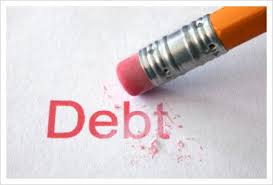Debt liquidation may seem confusing or even intimidating at first, but it is just the opposite. Understanding debt liquidation and how it works is an important factor to consider when filing for bankruptcy.
Debt Liquidation
Debt liquidation is the act of removing or getting out of debt through the discharge of debts owed. Debt liquidation through Bankruptcy can be done by both businesses and individuals alike.

Examples of Debts which may be Discharged, or Liquidated
There are various types of debts which may be liquidated or discharged in a Chapter 7 Bankruptcy. We’ve outlined a couple of them for you below.
Loans
Loans are one of the most common types of liquidated debts. Unsecured, personal loans are typically discharged in Bankruptcy. Also, interest on loans are discharged when you liquidate your debt in Bankruptcy.
Judgments
The Law Offices of Daniel J. Guenther won’t make any judgments when you’re filing for bankruptcy. The only type of judgments we deal with are the kinds that can be listed in your Bankruptcy. A legal judgment is the amount of money a Court determines you owe. Your debt can become liquidated or discharged in Bankruptcy..
Credit Cards
Credit card debt can accumulate quickly and, like most debt, can become overwhelming. Fortunately, credit card debt is typically discharged in Bankruptcy as well.
Credit card debt is typically discharged in Bankruptcy as well.
Advantages of Debt Liquidation
As you might imagine, there are numerous advantages of debt liquidation.
Discharged Debts
One of the most obvious advantages of debt liquidation is having your debt discharged when you declare bankruptcy under Chapter 7. Liquidating your debts can lead to a fresh start, and the ability to rebuild your finances without any burdens such as debt.
Keep your Assets
Another great advantage of debt liquidation is also one of its most common misconceptions. With Chapter 7 debt liquidation,
You can keep some or all of your assets.
Many people think that you will lose everything if you liquidate your assets; this couldn’t be more false! Some assets are exempt from loss, and can include your home, car, bank accounts, cash, and even furniture.
Stop Foreclosure instantly
Those filing for bankruptcy are more likely to be struggling paying their monthly mortgage payment. By becoming late on mortgage payments, the banks can start the foreclosure process. After filing for Chapter 7 bankruptcy, the foreclosure process can be put off, and the debtor is given time to deal with, or discharge debts.
If the Debtor is behind on the mortgage but wants to keep his home, the Bankruptcy Attorney will recommend a Chapter 13 to repay the mortgage arrears over a 3 to 5 year period, keeping the home for the Debtor and his family. If you successfully get rid of , or discharge, unsecured debts, paying your mortgage will finally be more possible.
To learn more about debt liquidation, contact the Law offices of Daniel J. Guenther today!



